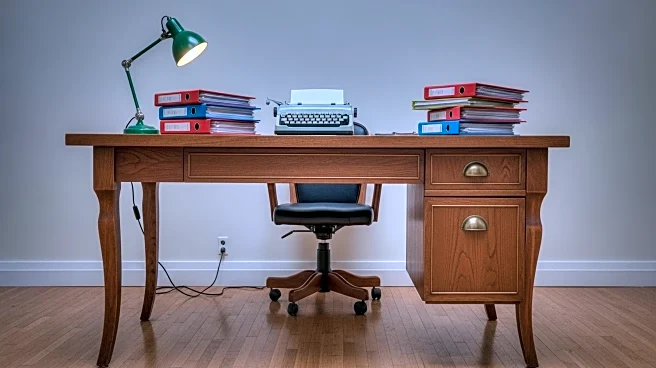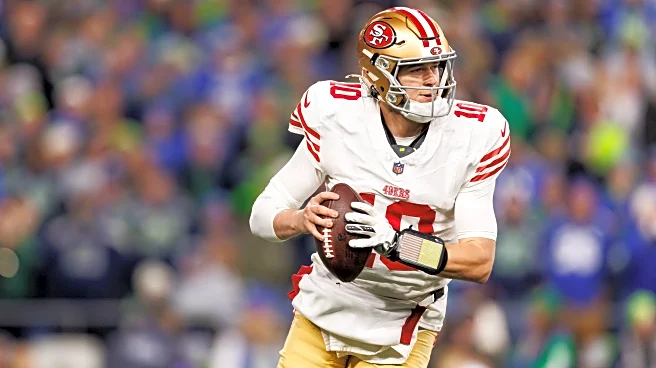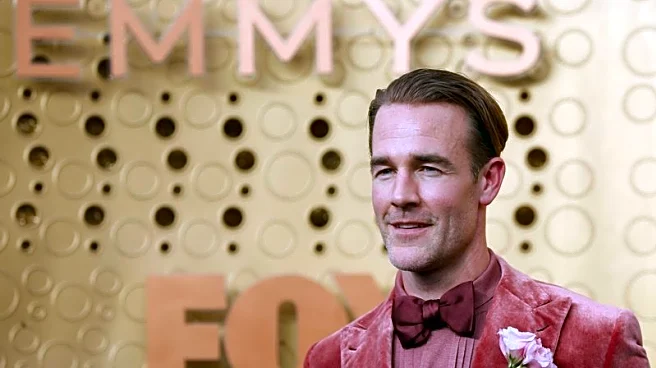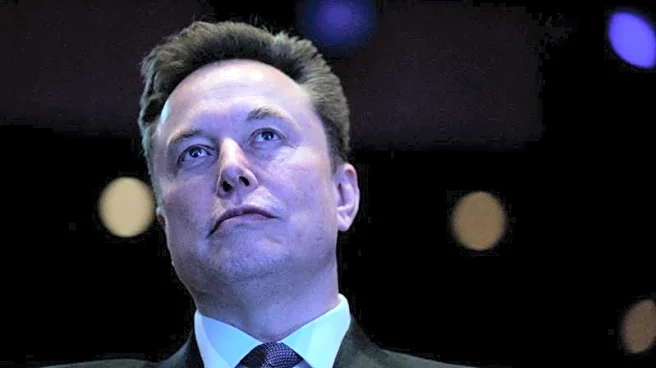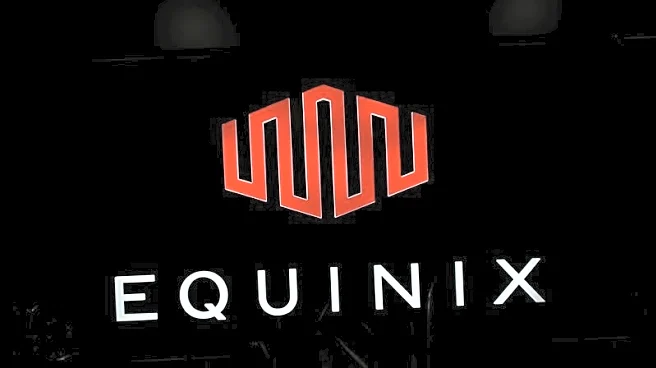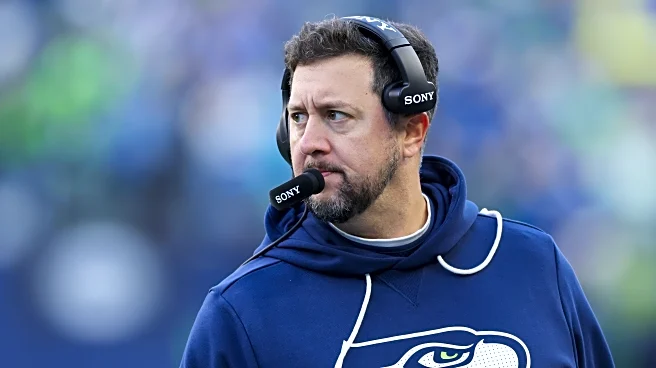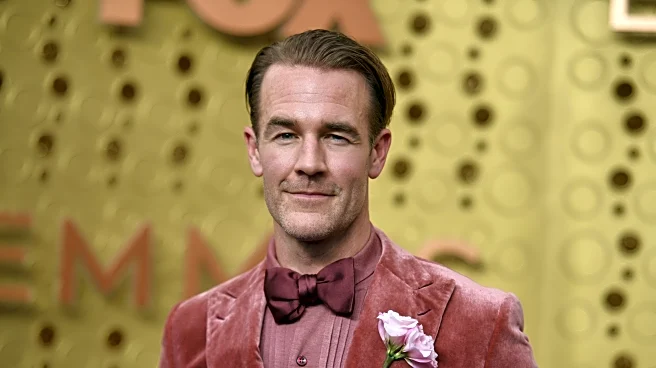What's Happening?
Australian actor Harriet Dyer stars in CBS's new workplace comedy 'DMV,' which premiered on Monday. The show is set in a fictional East Hollywood DMV office and follows the lives of its eclectic staff as they navigate daily interactions with the public. Dyer plays Colette, a driving examiner who enjoys helping people gain independence through driving. The series, created by Dana Klein, is inspired by personal experiences and a short story by Katherine Heiny. Dyer, known for her work in 'Colin From Accounts,' brings a fresh perspective to the American DMV, a place often associated with bureaucratic inefficiency.
Why It's Important?
The launch of 'DMV' on CBS highlights the network's strategy to bring fresh comedic content to its lineup, potentially attracting viewers who appreciate workplace comedies. Harriet Dyer's involvement adds international appeal, given her success with 'Colin From Accounts,' which gained popularity in the U.S. The show could reshape public perception of the DMV by portraying its employees in a humorous and relatable light, offering a new narrative around a typically mundane institution. This could influence how workplace comedies are developed, focusing on everyday settings with universal themes.
What's Next?
As 'DMV' begins its run, CBS will likely monitor audience reception and ratings to determine the show's future. Positive feedback could lead to additional seasons, while the network may explore similar concepts that blend humor with everyday experiences. Harriet Dyer's performance may open doors for more international actors in U.S. television, expanding the diversity of talent and storytelling. The show's success could also inspire other networks to invest in workplace comedies set in unconventional environments, broadening the genre's scope.
Beyond the Headlines
The portrayal of DMV employees in a comedic light may contribute to a cultural shift in how bureaucratic institutions are viewed, potentially fostering empathy and understanding for public service workers. The series could also spark discussions about the role of humor in addressing societal frustrations with bureaucracy, encouraging creative approaches to storytelling that challenge stereotypes and offer new perspectives.
